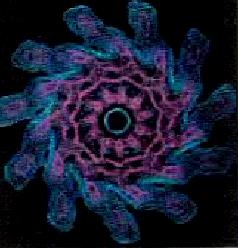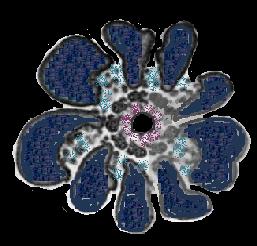Evolution science has two problems to resolve:-
(a) Miyn segments of code do exist and will segregate species into unique kinds.
(b) Avo-Evo has never been demonstrated in any organism naturally.
Miyn segments. Science has not understood all the unexplored regions of DNA code as yet, and whilesome evidence exists these non-protein sections of DNA actually do things functionally;science has still not quantified or qualified their functional roles in life. ThusCreation science can predict such Myin segments will exist and will soon be found.They Myin will be sections of DNA code that uniquely differ from various kinds suchas the dog from the cat or the fruit fly from the human, or the human from the chimp.Within each kind, each species will share the same Myin, while those species outside thekind with not share the same Myin. We can predict for example the wolf, dog, coyote,dingo and fox will all share the same Myin segments of DNA code. But we will also finddifferent sections of DNA code for each species that varies with the kind, because eachspecies is programmed to change and make new species. So we can also expect to find DNA codethat makes the dingo different from the wolf or different from the dog, but they will alsoshare the exact same Myin segments, even though they differ slightly in their genomes.
Avo-Evo. Evolution science might say that Avo-Evo cannot be observed one change at a time, untilthat organism gains enough functional new code to be useful. This is because unless the changedramatically improves the fitness of the pheontype, sexually the organism's fitness level will be weakenedso the new development is not passed onto the next generation. If Avo-Evo is happening we would expect to see lots of netural intermediates inside organisms all the time, albeit at a small scale. Instead, what we do see is Avo-Devo, the loss of benefical information, not the gain of benefical information.
 |  |
| Intelligent Designed | Natural designed |
In these pictures of the crossection of the bacteria flagella, if Aven Evolution is naturally occurring, there would be differences in design structures all the time as shown, and they would be random. Instead, what we see is very good Intelligent Design of DNA code running downhill, with a loss of benefical information, as Aven Devolution predicts.
Some could argue that an organism does not know if Aven Evolution design is benefical until it allows a better fitness level during phenotype expression. That is correct. So if Aven Evolution happened at all we would expect to see animals with less than perfect features of design today still moving around. But we don't see that. Instead we see every organism has been perfectly designed for environment it was suited for. Are they any flies with 8 legs for example or spiders with six as well as eight legs? Or birds with different numbers of airsacs for their lungs? Or imperfect organisms struggling to survive, while others related to it are surviving much better due to better random designs? Why do scientists mimic biological designs if they are only randomly engineered designs and assumed superior to other man made designs of engineering? Does time really improve design ? Or is the engineer copying another supreme Engineer who intentionally designed systems from the beginning?
We are taught to dream that natural Aven Evolution exists, that new mutants in comic books evolve strange new powers that provide superior benefit to the organism. But this belief is a myth. It's science fiction. Natural Aven Evolution does not exist. O nly as science gets smart enough are we seeing a rise in Intelligent Designed Aven Evolution, which we call in science Genetically Modifed Organisms (GMO). Such engineering is dangerous and defiles GOD's original design. In fact some say GMO means God Move Over, and allow human Intelligent Designers in. We have assumed Genetic Engineering is child's play and all things are easily understood, and one day we will engineer biological new forms of life, which will create chaos on the earth and lead to our very extinction.

Creationism themes   |
 See for more themes.
See for more themes.